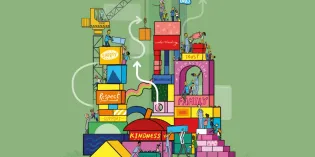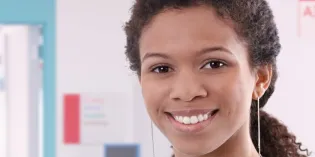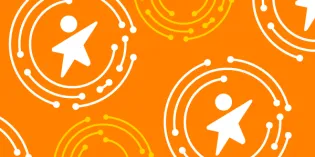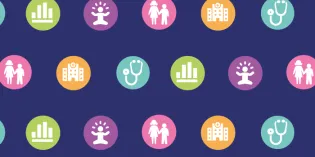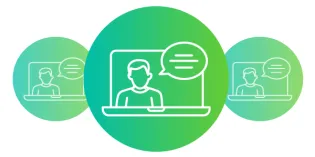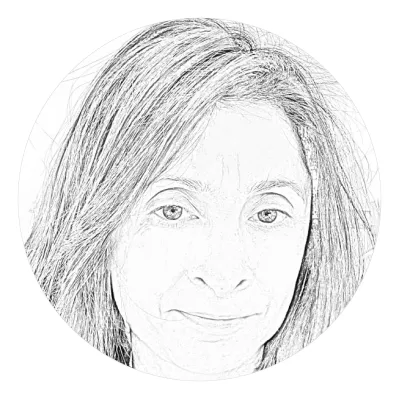
As a paediatrician I never know how this journey will unfold and who I will meet along the way. But one thing is certain: connection. I feel so privileged to have been part of the life story of so many children and their families.
It seemed like any other working day. I was sitting in my office planning my day… emails, clinic, ward review, letters. Then I received a phone call from a colleague who wished to discuss a case. I am a paediatric nephrologist who'd set up the first Paediatric Home Haemodialysis Unit in the UK. Being an outlier who practices medicine on the edge of widely accepted treatment options makes you many things in the eyes of your colleagues: innovative, a maverick, an expert, a loner, ambitious, vulnerable, a risk-taker.
Anna was bright, confident, almost sassy; she told me she needed to get better because she wanted to return to school.
She was an eight-year-old girl, Anna* . She'd developed renal cancer, twice, which had necessitated the removal of one kidney and then the other. Gradually her health deteriorated, and she developed advancing heart failure. Her medical teams were discussing a combined renal and heart transplant or a palliative route. As the weeks progressed the hopes of transplant started to fade. My colleague was calling to ask for palliative support but there was also hope; he had read about the superiority of Home Haemodialysis over other forms of dialysis and asked whether I was prepared to give this family a chance.
My first memories of the family were of strength, resilience and fight. Anna was bright, confident, almost sassy; she told me she needed to get better because she wanted to return to school. Her parents were focused, considered and determined to get their daughter home. Over the next six weeks we talked, set expectations, established ground rules and focused on building our working relationship. The family was successful and Anna transitioned home.
We worked together to optimise her dialysis, hoping at best to stabilise her, but we got more than we had ever imagined. Her heart completely recovered within six months. Plans changed, dreams changed, we started to talk about life, not palliation. The possibility of renal transplantation became a reality again. She was weeks away from being listed when she was admitted into hospital for a line infection. She left hospital with a new line and a diagnosis of a highly unusual thyroid cancer. We were all devastated.
However, with the family’s usual quiet resolve and determination, Anna underwent radiation therapy. And, beat the odds again. We celebrated and started to relax again. Transplantation could not be considered until she had been in remission for two years. Anna blossomed. She was living her life and dialysis became part of her life, but unlike many patients, she did not allow it to control her life. Her parents continued to dialyse her at home, never complaining. The whole family became advocates for Home Haemodialysis and soon became expert public speakers: there was never a dry eye in the room when Anna spoke at conferences.
I have evolved, I have grown, I have experienced, and this is worthy of a celebration. Anna and her family have taught me vital life lessons.
Eighteen months had passed and once more we started planning for a renal transplant. But then mum reported, ”She seems to have lost her appetite, vague tummy pain that I cannot explain,” Mum added, ”She is probably pushing herself too hard preparing for exams.” With these symptoms, cancer had to be excluded. We investigated, repeatedly, but nothing showed up for months. We had almost convinced ourselves that perhaps we were getting paranoid, but then the abdominal MRI report displayed our worst fears: cancer.
“No more,” she said, “I don’t want treatment.” Despite the opposing views of her oncology team the family remained strong advocates for their daughter‘s wishes. I found myself conflicted, I wanted the family to fight, medically there was still a chance. But then spending time with Anna - an intelligent 15-year-old who was resolute, so clear - it was hard to deny her wishes. After weeks of anguish, we set on an end-of-life pathway, working hard to make sure that each day was a good day. The community team were activated, her school worked relentlessly to get her through her exam and we, the dialysis team, took a conscious step to fade in the background, inconspicuous, with a new treatment aim of managing symptoms and restoring her energy.
She died peacefully at home, surrounded by her family, and her legacy continues. In the last few months of her life, Anna and her mum started planning a charity to ensure that children in hospital have access to education. After Anna died, her mum continued this work and this charity is now active.
As I sat down to write this blog, with tears in my eyes, I felt the grief, injustice, sadness all over again. However, as that dissipated, I was able to draw my attention to something else: gratitude. I have evolved, I have grown, I have experienced, and this is worthy of a celebration. Anna and her family have taught me vital life lessons:
- Who are we to judge? Be as generous with our hearts as we are with our minds
- Be equally passionate about the ‘mundane’, day-to-day life experiences of our patients as we are about innovations and cutting-edge treatments
I am humbled by my experiences as a paediatrician and have been hurt many times during my journey, but there is no denying that sense of privilege I feel for the work that I, we, all do.
Dr Dal Hothi is a Consultant Paediatric Nephrologist & Associate Medical Director for Wellbeing, Leadership & Improvement at Great Ormond Street Hospital for Children in London. She is also the Officer for Life-Long careers at RCPCH.
- *Names and other information that could identify someone have been changed.


